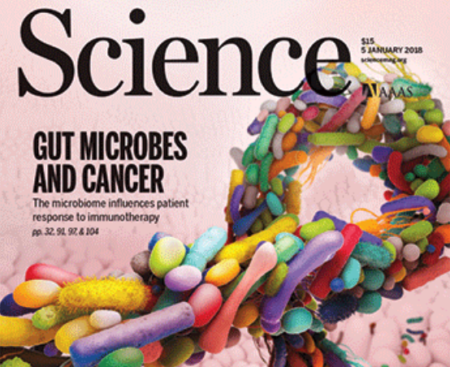Microbiome diversity, a balance among diverse types of microorganisms in the gut, can cut down cancer risk, suggest recent scientific studies.
The trillions of bacteria in your gut, also called gut flora or gut microbiome, affect almost every aspect of your health. While the role of these “friendly” microbes on gut health has been firmly established, emerging studies suggest they could also influence the cancer risk, both in good and bad ways.
Dysbiosis, an imbalance in the intestinal flora, has been closely linked to an increased risk of cancer. Conversely, an optimal balance could potentially reduce cancer risk. In this article, we explore the potential mechanisms through which a balanced gut microbiome could stave off cancer.
1. Microbiome diversity boosts the body’s natural antioxidant capacity

The human body has its own natural antioxidant systems that help detoxify the body and protect the cells from free radical damages. A recent paper published in Molecular Systems Biology found that gut microbiota plays a crucial role in regulating the glutathione and amino acid metabolism of the host.
Glutathione is the most powerful antioxidant in the body that helps in the removal and detoxification of cancer-causing substances.
2. A healthy gut is a key to maintaining the barrier function
From recent studies, it is evident that an impaired intestinal barrier can promote dysbiosis often leading to a dangerous increase in the strains of the microbes that promote tumor formation.
Moreover, researchers also believe that a weak barrier function not only promotes dysbiosis but may also facilitate the spread of cancer cells from one site to another.
3. Microbiome diversity promotes anti-inflammatory pathways
It’s no new thing that many inflammatory disorders such as ulcerative colitis, Crohn’s disease, atherosclerosis, and atopic dermatitis have their roots in disturbed gut flora. In addition, certain cancers could also result due to the inflammation caused by an abnormal immune response. In essence, inflammation is the primary finding in many long-term diseases and cancer.
A 2017 study published in CA: A Cancer Journal for Clinicians revealed that a healthy gut could protect the cells from cancer by increasing the levels of anti-inflammatory and anticancer substances like IL-10 and Regulatory T cells (Tregs).
The other possible protective roles of microbiome diversity include – DNA repair and regulation of signaling pathways. However, more studies need to confirm this.
How Can You Naturally Boost Microbiome Diversity in the Body?
The easiest way to boost microbiome diversity in your body is to increase the consumption of probiotic-rich foods such as yogurt, kefir, sauerkraut, tempeh, kimchi, miso, and kombucha.
Nevertheless, the problem with these natural foods could be that many people might not like the taste of certain foods or have no time to prepare a mouth-watering recipe using them. In addition, because they are foods, it would be likely impossible to know what types and how much of probiotics you are taking.
For these reasons, you may consider taking high potency probiotics that contain all the essential microbes in the right amounts. For further benefits, consider taking a supplement that also contains the power of prebiotics and immunobiotics. Immunobiotics are specially designed supplements that boost your immune health.
Email reply to us at BIOM for a FREE consultation on which formulations are best for you. And right now you can get FREE Cold Shipping and FREE 2-Day shipping with any BIOM product. Start writing! Visit us at Biom Probiotics today.
References
The role of the microbiome in cancer development and therapy
Chalmers University of Technology. “Gut microbiota regulates antioxidant metabolism.“




